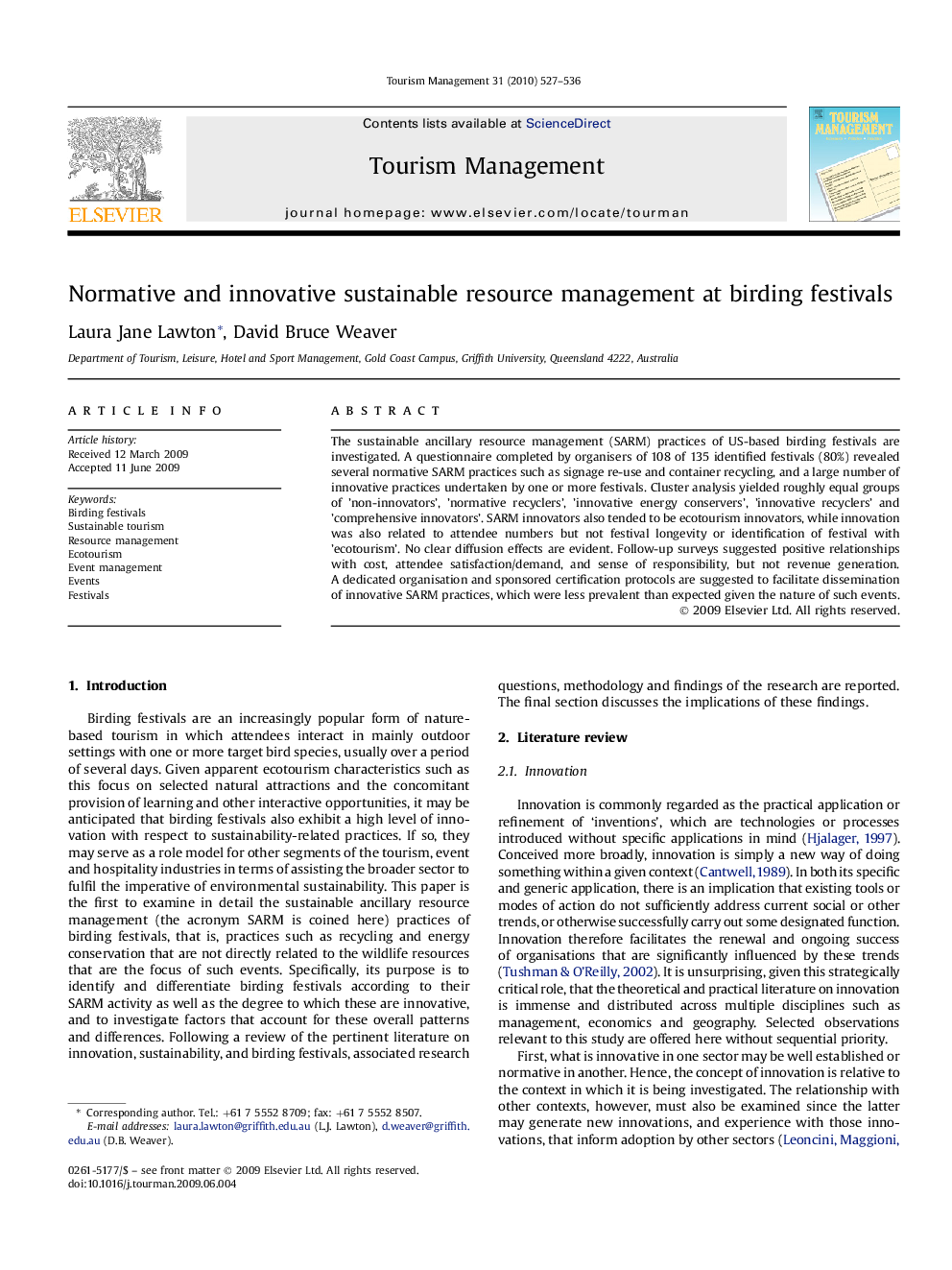| Article ID | Journal | Published Year | Pages | File Type |
|---|---|---|---|---|
| 1012726 | Tourism Management | 2010 | 10 Pages |
The sustainable ancillary resource management (SARM) practices of US-based birding festivals are investigated. A questionnaire completed by organisers of 108 of 135 identified festivals (80%) revealed several normative SARM practices such as signage re-use and container recycling, and a large number of innovative practices undertaken by one or more festivals. Cluster analysis yielded roughly equal groups of 'non-innovators', 'normative recyclers', 'innovative energy conservers', 'innovative recyclers' and 'comprehensive innovators'. SARM innovators also tended to be ecotourism innovators, while innovation was also related to attendee numbers but not festival longevity or identification of festival with 'ecotourism'. No clear diffusion effects are evident. Follow-up surveys suggested positive relationships with cost, attendee satisfaction/demand, and sense of responsibility, but not revenue generation. A dedicated organisation and sponsored certification protocols are suggested to facilitate dissemination of innovative SARM practices, which were less prevalent than expected given the nature of such events.
